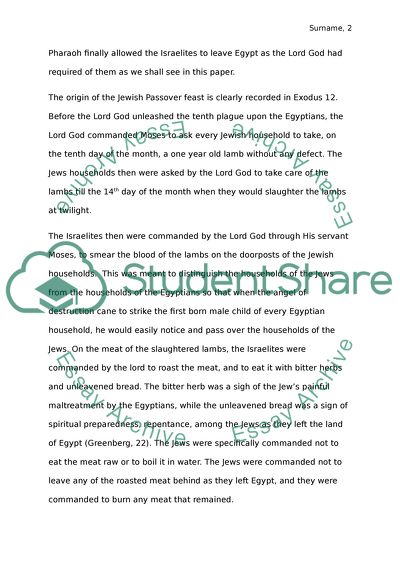Cite this document
(“The origin of passover Research Paper Example | Topics and Well Written Essays - 1000 words”, n.d.)
Retrieved from https://studentshare.org/religion-and-theology/1636549-the-origin-of-passover
Retrieved from https://studentshare.org/religion-and-theology/1636549-the-origin-of-passover
(The Origin of Passover Research Paper Example | Topics and Well Written Essays - 1000 Words)
https://studentshare.org/religion-and-theology/1636549-the-origin-of-passover.
https://studentshare.org/religion-and-theology/1636549-the-origin-of-passover.
“The Origin of Passover Research Paper Example | Topics and Well Written Essays - 1000 Words”, n.d. https://studentshare.org/religion-and-theology/1636549-the-origin-of-passover.


